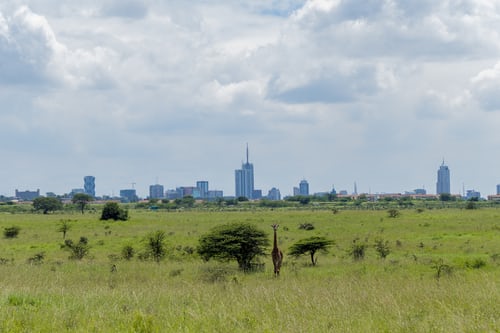NAIROBI, Kenya, Oct 27- The World Bank Board of Directors have approved a Sh16.6 billion financing agreement with the Government of Kenya to strengthen local resilience to the impact of climate change in Kenya, through the Financing Locally-Led Climate Action programme, which is part of Kenya’s 10-year Government Financing Locally-Led Climate Action programme launched in June 2020.
Through this financing agreement with the World Bank, the Governments of Sweden, Denmark, and other development partners, Kenya will be the global pioneer in operationalizing social resilience principles of developed climate finance and participatory climate risk management by means of financial investment and geographical coverage.
“Climate change remains the biggest challenge of our age, with Kenya’s climate-sensitive economy being prone to droughts and floods with an economic liability of up to 2.8 percent of GDP annually,” National Treasury Cabinet Secretary Ukur Yattani said during the bank’s approval of financing agreement.
He added that Kenya, “has an immediate need to create climate resilience in sectors such as agriculture, water, energy, tourism, and wildlife, which are not only affected by climate change but also by the adverse effects of COVID-19 pandemic.”
“As a nation, we remain cognizant of the challenges that lie ahead but remain confident with the support of the World Bank and other development partners coupled by Kenyans innovation and resilience, we will build our National and Counties’ capacities’ to manage climate risks and enhance our resilience, with homegrown solutions in collaborative and progressive approach between the two levels of government, but more importantly, owned and driven by locals communities.”
The programme will support the scaling up of community-led climate resilience actions while developing the capacities of national and county institutions to plan, budget, report, finance, and implement green initiatives at the local level.
It will place the power and tools to predict, prepare and respond to climate shocks in the hands of the most vulnerable communities and give County Governments a central role in climate action at the local level.
Kenya continues to be a leader in mobilizing green finance and promoting greater transparency in climate action, in line with 2015 Paris Accord, providing other countries with an effective model for the coding, tracking and reporting of climate-relevant interventions and expenditures, facilitating better co-ordination and effectiveness in mitigating and adapting to the effects of climate change.
The Financing Locally-Led Climate Action programme seeks to create both an enabling environment and innovative decentralised approach in tackling climate change impacts.
Derived from Kenya’s National Climate Change Action Plan, the programme will strengthen local resilience to climate by delivering support in seven key areas; policy, legal and regulatory framework, capacity building, climate finance, community-led actions, technology and innovation, measurement, reporting. verification, monitoring and evaluation, and emerging climate-related issues.
The implementation of the 5-year programme will be led by the National Treasury, “given its strong emphasis on climate finance, with the adoption of the innovative County Climate Change Fund as a financing instrument to support financing, public participation, climate information, demand-driven capacity building and monitoring and evaluation of climate change actions.”
The National Treasury said the programme will support the achievement of Kenya’s adaptation and mitigation commitments under the National Adaptation Plan and Nationally Determined Contributions (NDC) on climate change.
Want to send us a story? Contact Shahidi News Tel: +254115512797 (Mobile & WhatsApp)


